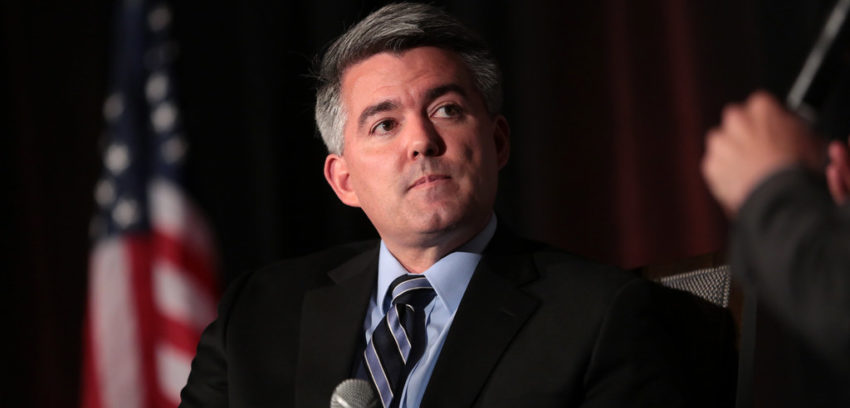Over the course of Colorado Sen. Cory Gardner’s public career, a dozen of his staffers beelined from his office into high-paying corporate lobbying roles – including stints lobbying for pharmaceutical giants such as GlaxoSmithKline and AstraZeneca – raising suspicions about Gardner’s continued silence on issues like capping prescription drug prices.
In 2018, Helen Dwight, a former policy advisor for Gardner, lobbied for AstraZeneca – a pharmaceutical giant that was forced to settle in 2010 by the US Justice Department for allegedly marketing a dangerous antipsychotic drug. Dwight specifically lobbied on HR 3, a widely acclaimed bill that would allow Health and Human Services to negotiate prescription drug prices, which would lower the costs of medication such as insulin for the millions of Americans who rely on them. HR 3 is one of nearly 400 bills passed by the House of Representatives to be left dead in the water on Mitch McConnell’s desk. AstraZeneca and other Big Pharma giants stand to see a hit in their sales revenue because of such price caps proposed by HR 3.
Gardner – who has accepted nearly half a million dollars in contributions from Big Pharma during his career – has been noticeably quiet about price caps and Congress’s efforts to curb prescription drug costs. Gardner’s silence on the issue suggests an unwillingness to pursue legislation that negatively affects the profit models of pharmaceutical corporations because of their financial support of his reelection campaign and the influence of his former staffers – now turned lobbyists – over his legislative priorities.
Other Gardner staffers who have gone on to lobby for corporate pharma giants include the Senator’s former chief of staff, who is currently lobbying for another pharma giant, Pfizer. Even former interns of Gardner’s went on to lobby for corporate groups such as GlaxoSmithKline – an organization that was fined billions in 2012 for bribing doctors to prescribe unsuitable antidepressants to children.
In total, at least twelve Gardner staffers have gone on to lobby for various corporate interests after departing his office. In addition to the pharmaceutical industry, former staff members have also lobbied for the Colorado Association of Commerce and Industry – an organization that lobbied against union organizing – and for organizations such as the Judicial Action Group, which lobbies for the appointment of right-wing judges.
The direct revolving door that appears to be in place between Gardner’s office and corporate America raises suspicions about the outside influence of corporate cash on his tenure in public office. In November, Gardner will be seeking reelection as United States Senator from Colorado.

